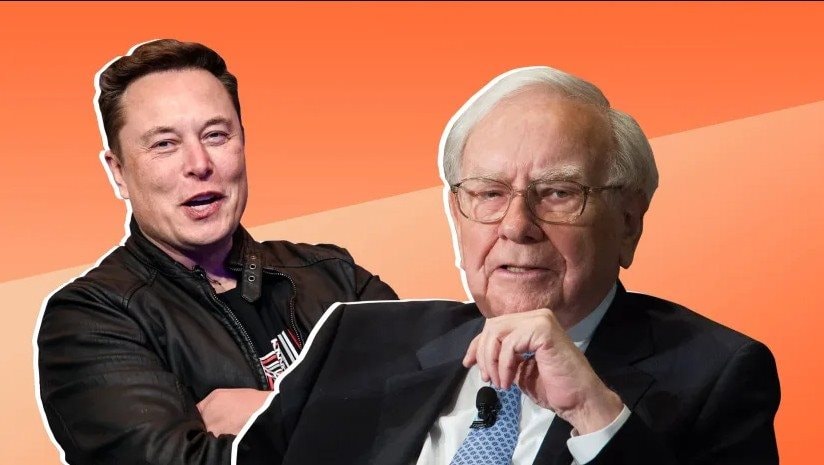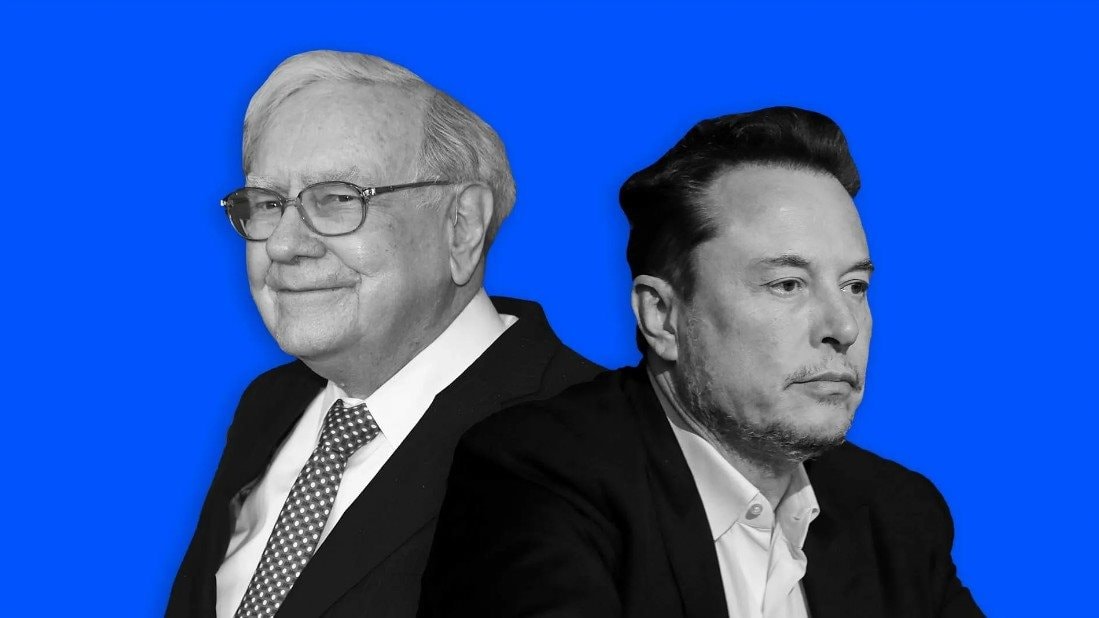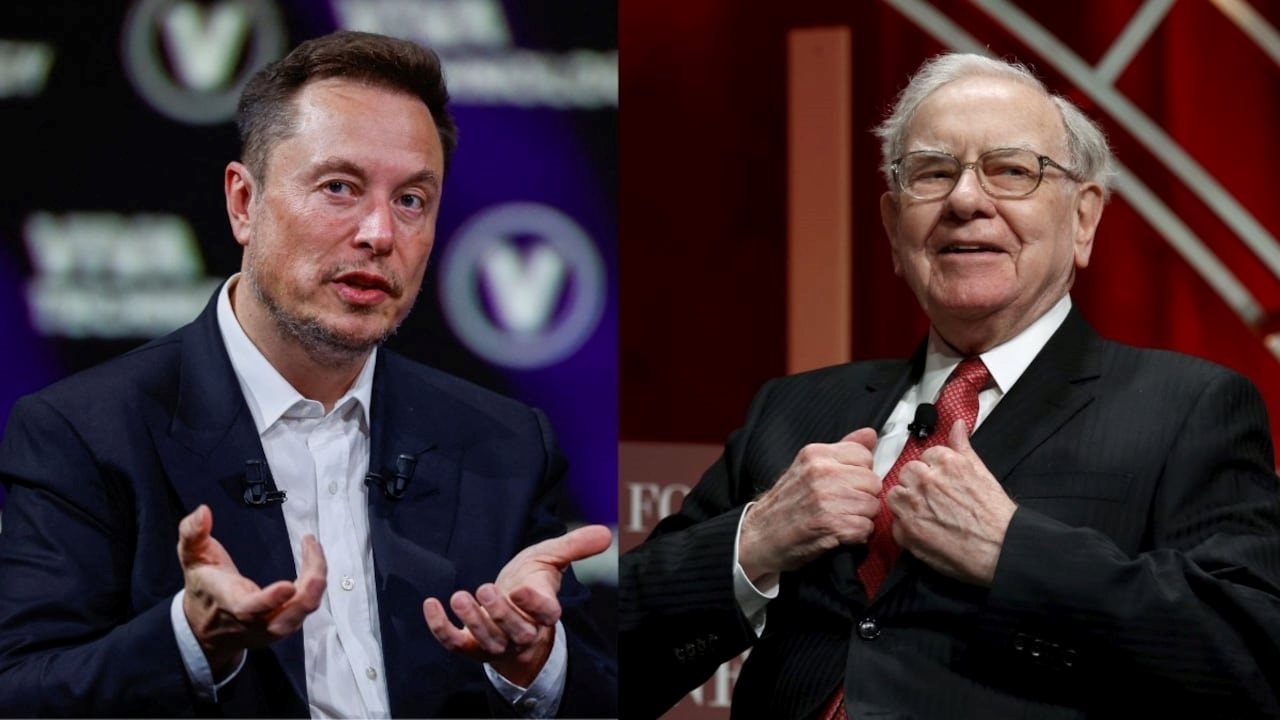“CEOs are human beings, and what makes a rich CEO uncomfortable is seeing another CEO richer than him,” said Warren Buffett.

Warren Buffett, the legendary CEO of Berkshire Hathaway, recently issued a sharp warning in his annual letter to shareholders, accusing CEO compensation of skyrocketing out of control, driven by a toxic psychology: jealousy and greed.
While not directly naming names, Buffett’s comments were a direct criticism of recent massive compensation packages, the focus of which cannot be ignored is Elon Musk’s historic $1 trillion deal at Tesla.
Compensation race
In his annual letter to Berkshire Hathaway shareholders, investor Warren Buffett frankly warned about the trend of business leaders increasingly being caught up in a spiral of comparing and competing for huge salaries, even “skyrocketing” regardless of actual efficiency.
Berkshire’s investment legend describes the trend of rising CEO pay as a “snowballing” phenomenon, where business leaders constantly “scrutinize” each other’s increasingly large compensation deals.
What bothers already wealthy CEOs, he says, is not their personal wealth, but the fact that their peers are getting richer. Greed, amplified by envy, has created a never-ending compensation race where no consultant dares to suggest a serious cut.

Warren Buffett does not hide his frustration with this reality. According to him, greed and selfishness are becoming the main motivation for CEOs to increase their remuneration.
“CEOs are human beings, and what makes a rich CEO uncomfortable is seeing another CEO richer than him,” said Warren Buffett.
Jealousy and greed go hand in hand, and few consultants have dared to suggest significant cuts in CEO or board compensation.
Buffett’s warning comes as Tesla shareholders approved a record compensation package for Elon Musk, worth up to $1 trillion, contingent on the company reaching a market capitalization of $8.5 trillion.
If completed, Musk would become the world’s first trillionaire, a symbol of the power and influence of CEOs in the modern economy.
Shortly after, Rivian also announced a $4.6 billion compensation package for CEO RJ Scaringe, modeled after Elon Musk’s plan, affirming that comparisons between CEOs are becoming the “standard” among American business leaders.
Transparency is counterproductive.
According to Warren Buffett, the rules requiring companies to disclose CEO compensation were an early attempt to make leaders feel inferior and promote humility, but they failed miserably. These good intentions backfired because, instead of creating moderation, the new rules simply provided a public scorecard, turning compensation into a wealth contest.
The 20-page mandate notices have ballooned to over 100 pages, but instead of creating regulation, they have only fostered jealousy.
CEOs look at their competitors and signal to their boards that they “deserve more,” while also increasing board member salaries and being careful about who sits on their compensation committees, creating a vicious cycle of competition.
Data from the Institute for Policy Studies (IPS) shows that between 2019 and 2024, CEO compensation at the 100 lowest-paying US companies increased by 34.7%, and the salary ratio between CEOs and employees also increased from 560:1 to 632:1.
Similarly, a recently published Oxfam report found that these unreasonable bonuses contributed to enriching the American billionaire group by 698 billion USD in the past year.

In contrast, Warren Buffett has an annual salary of $100,000 even though his net worth is around $150 billion thanks to his investments, making him the 11th richest person in the world.
Warren Buffett’s voice was reinforced by opposition from other financial giants. Norges Investment Management, which manages Norway’s $2 trillion sovereign wealth fund and holds a 1.14% stake in Tesla, voted against Elon Musk’s compensation plan.
The unit expressed concerns about “the total size of the awards, the dilution of shares and the lack of mitigation of key personnel risk,” a caution about placing too much power and wealth in the hands of one individual, despite his or her “visionary” role.
Clearly, Warren Buffett’s message is not only a reminder of business ethics, but also a direct warning to figures like Elon Musk: huge wealth and power, if left unchecked, will create negative social and corporate culture consequences.
Warren Buffett thus reiterates that, in a context where CEOs are caught up in the race for earnings, moderation, transparency, and accountability are not just financial issues, but also measures of ethical leadership. Otherwise, the corporate elite will continue on the path Warren Buffett describes: greed and envy leading, fairness and moderation taking a back seat.
News
Blake Shelton Just Surpassed Tim McGraw With This Major Country Radio Milestone
Blake Shelton reached No. 1 with the first song he ever released—”Austin,” off his 2001 self-titled debut album. It certainly…
“Oh! Turns Out Lainey Wilson Also Likes to Catch Up on World News Before Bed!”
Lainey Wilson Reveals a Surprising Tour Habit: “I Look Right Before I Go to Sleep” As the new year has…
There was no miracle… “Kelsea Ballerini’s greatest gift in life is gone.”
Kelsea Ballerini Mourns The Loss Of Her Soul Dog, Dibs: “Greatest Gift Of My Life” Rest in peace, good boy….
Jason Aldean and his wife, Brittany, did not disappoint fans with their first duet performance.
Jason Aldean Teams Up With His Wife, Brittany, For Their First-Ever Duet, “Easier Gone” Ozzie B/imageSPACE/Sipa USA/Alamy Live News Their…
“Megan Moroney on a Major Shift in Country Music — and Why the ‘Good Ol’ Boys’ Should Watch Their Backs”
“Giving The Guys A Run For Their Money”: Megan Moroney on the Massive Shift in Country Music AMBER ASALY Amen…
“The Kindest, Most Patient, And Attentive Partner” – Zach Bryan’s Wife Samantha Shares Emotional Tribute Following New Album Release
Sounds like the honeymoon phase is still going strong. It’s already been a big year for country music superstar Zach Bryan….
End of content
No more pages to load












